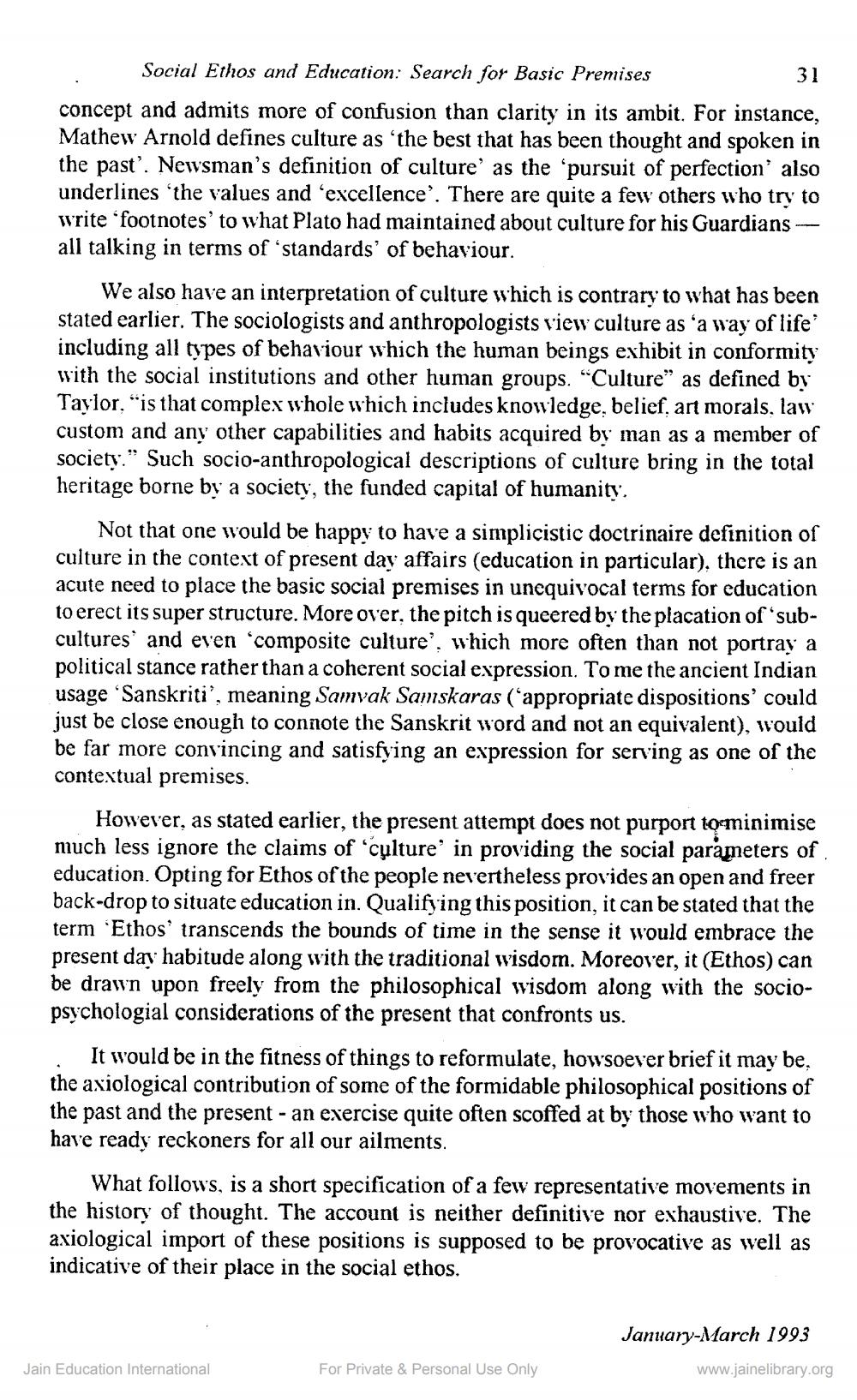________________
Social Ethos and Education: Search for Basic Premises
31
concept and admits more of confusion than clarity in its ambit. For instance, Mathew Arnold defines culture as 'the best that has been thought and spoken in the past'. Newsman's definition of culture' as the 'pursuit of perfection also underlines 'the values and 'excellence'. There are quite a few others who try to write 'footnotes' to what Plato had maintained about culture for his Guardians - all talking in terms of 'standards' of behaviour.
We also have an interpretation of culture which is contrary to what has been stated earlier. The sociologists and anthropologists view culture as a way of life? including all types of behaviour which the human beings exhibit in conformity with the social institutions and other human groups. “Culture” as defined by Taylor, “is that complex whole which includes knowledge, belief, art morals, law custom and any other capabilities and habits acquired by man as a member of society." Such socio-anthropological descriptions of culture bring in the total heritage borne by a society, the funded capital of humanity.
Not that one would be happy to have a simplicistic doctrinaire definition of culture in the context of present day affairs (education in particular), there is an acute need to place the basic social premises in unequivocal terms for education to erect its super structure. Moreover, the pitch is queered by the placation of 'subcultures and even composite culture', which more often than not portray a political stance rather than a coherent social expression. To me the ancient Indian usage 'Sanskriti', meaning Samvak Samskaras (“appropriate dispositions' could just be close enough to connote the Sanskrit word and not an equivalent), would be far more convincing and satisfying an expression for serving as one of the contextual premises.
However, as stated earlier, the present attempt does not purport to minimise much less ignore the claims of "culture in providing the social parameters of education. Opting for Ethos of the people nevertheless provides an open and freer back-drop to situate education in. Qualifying this position, it can be stated that the term 'Ethos transcends the bounds of time in the sense it would embrace the present day habitude along with the traditional wisdom. Moreover, it (Ethos) can be drawn upon freely from the philosophical wisdom along with the sociopsychologial considerations of the present that confronts us.
It would be in the fitness of things to reformulate, howsoever brief it may be, the axiological contribution of some of the formidable philosophical positions of the past and the present - an exercise quite often scoffed at by those who want to have ready reckoners for all our ailments.
What follows, is a short specification of a few representative movements in the history of thought. The account is neither definitive nor exhaustive. The axiological import of these positions is supposed to be provocative as well as indicative of their place in the social ethos.
January-March 1993
Jain Education International
For Private & Personal Use Only
www.jainelibrary.org




